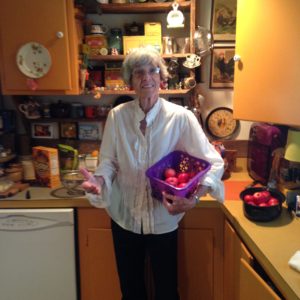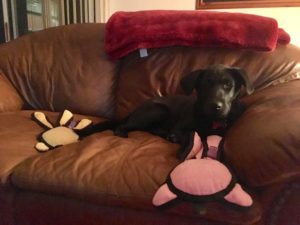For thirty-two years, my mother wrote a cooking newsletter. Filled with homespun tales and hand-drawn illustrations, its readership spanned the globe.
A graphic artist by trade, her talents weren’t confined to canvas. She was a gourmet cook, too, lovingly testing each recipe in the kitchen of our 175-year-old farmhouse.
I learned to cook there. At nine, I made my first pie: peach, with lattice crust. Two years later, when my separated parents were trying to make another go of it, I baked a cassoulet, my father’s favorite. My hopes for a reunion were high. The meal was perfect.
The marriage was not.
Mom remarried; I moved away. Over the years, the newsletter yielded a book deal and blog.
And now, in that tiny kitchen where masterpieces were once made, her apron gathers dust. Together, we’ll bake cookies and fudge this holiday season, recipes from a hazy long ago as fleeting as the memories we create.




